Entrepreneurship Law: Company Creation

Credit: Cover of "Entrepreneurship Law: Company Creation" by Samantha Prince is Public Domain
Resource Description
This open-source ebook was created to be used by anyone teaching Entrepreneurship or Startup Law. Professor Prince teaches Penn State Dickinson Law’s Entrepreneurship Law: Company Creation course and used this book in conjunction with skills-based exercises. Due to the independent, practical, and experiential nature of this course, the book is deliberately designed to ignite thought and require additional student research on each topic. As such, each unit does not provide complete coverage of each topic but rather provides material needed to serve as guidance and skill-building.
Environment and Society in a Changing World
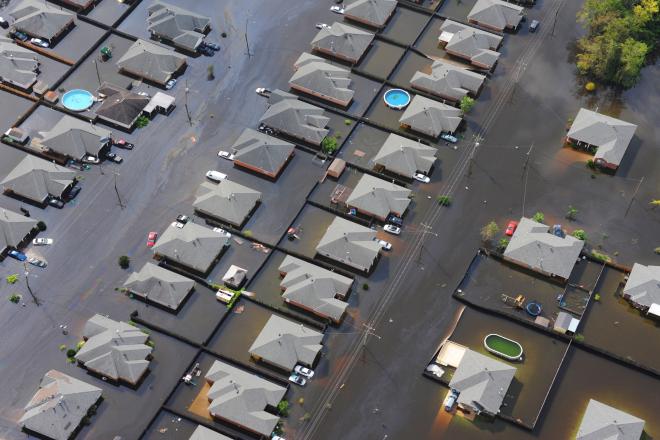
Credit: Ariel view of a flooded neighborhood near New Orleans by Petty Officer 1st Class Matthew Schofield is Public Domain
Resource Description
What factors lead to a natural disaster? What causes a famine? Why do cities flood? According to a recent article in The Atlantic, Houston's flooding during the 2017 Hurricane Harvey was primarily caused by impervious pavement which prevents the absorption of water into the land. This example illustrates how nature and society are interlinked, which is the main focus of Geography 30, Penn State's introductory course to nature-society geography. In addition to examining the linkages between human development and natural hazards, this course will also explore human society's connection to food systems, climate change, urbanization and biodiversity. The course will also cover topics of ethics and decision making in order to help students evaluate the tradeoffs of these interconnections.Environmental Challenges in Spatial Data Science

Credit: Moor Swamp Landscape Nature Nature Reserve by herbert2512 is licensed under CC0
Resource Description
Increasingly volatile climate and weather; vulnerable drinking water supplies; shrinking wildlife habitats; widespread deforestation due to energy and food production. These are examples of environmental challenges that are of critical importance in our world, both in far away places and close to home, and are particularly well suited to inquiry using geographic information systems. In GEOG 487 you will explore topics like these and learn about data and spatial analysis techniques commonly employed in environmental applications. After taking this course you will be equipped with relevant analytical approaches and tools that you can readily apply to your own environmental contexts.Essentials of Oceanography
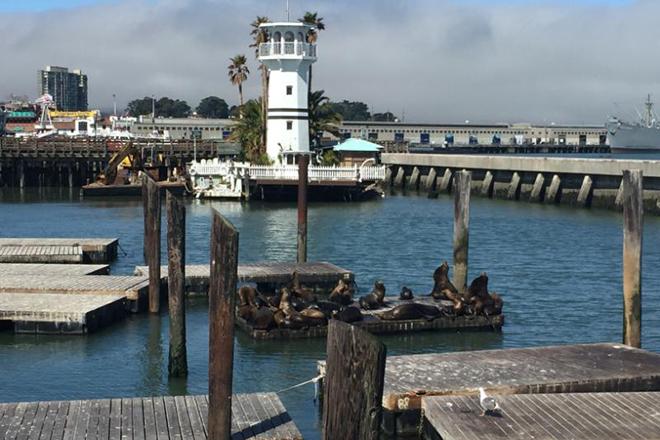
Credit: E. Rubio © Penn State University, is licensed under CC BY-NC-SA 4.0
Resource Description
The year is 2050 and your once-idyllic beachfront vacation home is now flooded up to the second story. The crab your family has enjoyed every Christmas for as long as you can remember has now become an endangered species. The oceans have changed. In EARTH 540, Oceanography for Educators, we explore the mechanisms that lead to sea level rise and ocean acidification. We strive to understand how natural processes such as ocean currents, the gulf-stream, tides, plate tectonics, and the Coriolis Effect, affect our oceans and ocean basins. We then predict how man-made issues such as climate change and overfishing will affect our beloved waters and our livelihoods. This course is no longer being offered for credit and has not been updated since 2019.Ethical Dimensions of Renewable Energy and Sustainability Systems
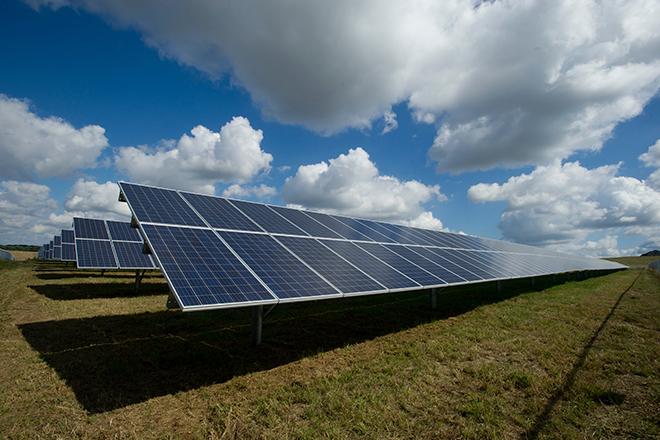
Credit: Solar Panels by American Public Power Association is free to use
Resource Description
This course presents an examination of ethical issues relevant to systems-based research procedures, professional conduct, social and environmental impacts, and embedded ethics in research and professional practice in RESS based jobs. In this course, you will consider case studies of ethical issues that can arise when engaging renewable energy and sustainability systems. You will also develop an ethics case study based on your area of RESS interests. The goals of the course are to provide you with tools for analyzing ethical issues both in the line of professional duties and in consideration of the various ethical issues that face an entire sector of renewable energy and that underpin the very reasons for taking a sustainable and renewable approach.Exploring Imagery and Elevation Data in GIS Applications

Credit: D'Urville Island, New Zealand by Alex Siale is free to use
Resource Description
“Exploring Imagery and Elevation Data in GIS Applications” (GEOG 480) focuses on the use of remotely sensed imagery and elevation data in GIS applications. Students enrolling in GEOG 480 should have a solid conceptual foundation in geospatial information science and technology. GEOG 480 is appropriate for those who are already working in the geospatial profession and wish to use imagery and elevation data in visualization and spatial analysis. Throughout the course, students confront realistic remote sensing problem scenarios that incorporate such skills and concepts as definition of data needs, metadata content standards, data formats and types, and analysis methods.Fast Fashion

Rana Plaza Commemoration March by Greens/EFA Group is licensed under CC BY 2.0, via Wikimedia Commons
Resource Description
Who doesn’t want to be fashionable? Fast fashion is quickly becoming one of the world’s biggest problems. The fashion industry is creating more clothing than we can use, most of it of lower quality, and many of which ends up in landfills. Consumers buy this cheaply made clothing following fashion trends, but the garment breaks or we grow tired of it, and we donate it. What happens to the clothing we donate? It has been said that after oil, the fashion industry is globally the most polluting industry. This module explores the global impacts of fashion consumerism, the impact on local economies, and its effects on the environment.
Food and the Future Environment
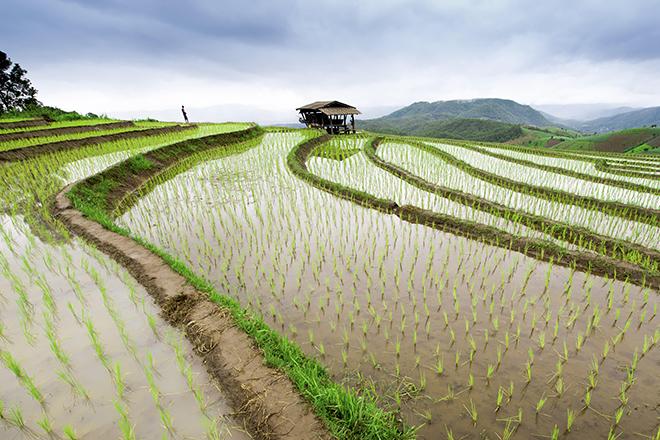
Credit: Green Terraced Rice Field by Joney, licensed through Shutterstock, Used with permission.
Resource Description
The Future of Food is an introductory-level science course that emphasizes the challenges facing food systems in the 21st century, and issues of sustainability for agriculture and other food production activities, as well as the challenges posed by food insecurity and modern diets to human health and well-being. Topics covered include introduction to the coupled-system perspective, historical development of food systems, socioeconomic aspects of the food system, interaction of the food system with the Earth's environment including soil, water, biota and climate, and the future of the food system considering potential changes such as in climate, urbanization, and demography.Foreign Studies
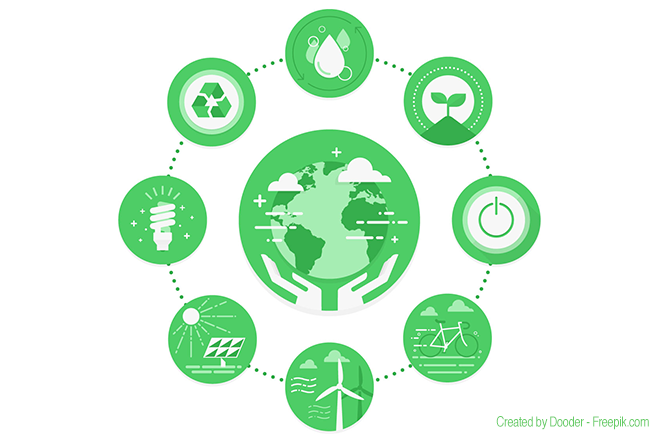
Credit: Green Vector by Dooder is free to use

